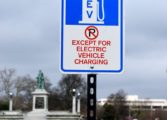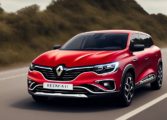Hybridbil eller elbil: Det ultimata valet för framtidens bilägare

Introduction
Hybrid and electric vehicles have taken the automotive industry by storm, offering a sustainable and eco-friendly alternative to traditional petrol or diesel cars. As the world moves towards a greener future, it’s crucial for car enthusiasts to understand the differences between hybrid and electric vehicles and make an informed decision. In this comprehensive article, we will delve into the world of hybrid and electric cars, exploring their features, types, popularity, quantitative measurements, variations, historical pros and cons, and crucial decision factors for car enthusiasts.
An Overview of Hybrid and Electric Vehicles

Hybrid cars seamlessly combine a traditional internal combustion engine with an electric motor. This dual power system allows the vehicle to be powered by either one or both sources, resulting in increased fuel efficiency and reduced emissions. On the other hand, electric cars exclusively rely on electricity to propel the vehicle, eliminating the need for fossil fuels altogether. Both options offer significant advantages, but understanding their differences is crucial.
Extensive Presentation of Hybrid and Electric Vehicles
1. Hybrid Vehicles:
a. Full Hybrid: These vehicles can operate solely on electric power for short distances and are capable of regenerating energy when braking or decelerating.
b. Mild Hybrid: Unlike full hybrids, mild hybrids cannot run solely on electric power. Instead, they assist the combustion engine, reducing fuel consumption and emissions.
c. Plug-in Hybrid: These hybrids can be charged from an external power source, providing a longer electric-only range. Once the electric battery depletes, the combustion engine takes over.
2. Electric Vehicles:
a. Battery Electric Vehicles (BEVs): These cars run solely on electricity and have no internal combustion engine. They require charging from an external power source, such as a wall outlet or charging station.
b. Extended Range Electric Vehicles (EREVs): EREVs are similar to plug-in hybrids, allowing longer electric-only driving. However, unlike hybrids, once the electric power depletes, the combustion engine works as a generator to extend the range.
Popular hybrids include the Toyota Prius and the Honda Insight, while electric vehicles like the Tesla Model S and Nissan Leaf have gained significant popularity in recent years.
Quantitative Measurements of Hybrid and Electric Vehicles
When comparing hybrid and electric vehicles, a few key quantitative measurements play a crucial role:
1. Range: Electric vehicles’ range refers to the distance they can travel on a single charge, which varies depending on the vehicle. Hybrid vehicles, on the other hand, don’t have a fixed range as they rely on both electric and combustion power sources.
2. Fuel Efficiency: Hybrid vehicles usually offer better fuel efficiency than traditional vehicles, thanks to their dual power system. Electric vehicles, meanwhile, have zero tailpipe emissions, offering excellent energy efficiency.
3. Charging Time: Electric vehicles require charging, which can vary depending on the charger type and the vehicle’s battery capacity. Hybrid vehicles don’t require charging as they generate their electric power through regenerative braking or from the combustion engine.
These measurements help consumers assess the suitability of each option based on their specific needs and usage patterns.
Differences Between Hybrid and Electric Vehicles
While both hybrid and electric vehicles promote sustainability, they differ in several significant aspects:
1. Fuel Dependency: Hybrid vehicles still require petrol or diesel to operate, albeit in reduced quantities, while electric vehicles solely rely on electricity, which can be generated from renewable sources.
2. Performance: Hybrid vehicles often offer better acceleration due to the combined power of the engine and electric motor. Electric vehicles provide instant torque, resulting in impressive acceleration but limited top speeds.
3. Range Anxiety: Electric vehicles might present range anxiety, particularly on long journeys, due to limited charging infrastructure and longer refueling times compared to traditional petrol stations. Hybrid vehicles provide the convenience of refueling at any petrol station.
4. Maintenance: Hybrid vehicles require maintenance similar to traditional cars, including oil changes and brake inspections. Electric vehicles have fewer moving parts, reducing maintenance needs.
5. Cost: Generally, hybrid vehicles are priced lower than fully electric vehicles, making them a more affordable entry point into the world of green cars.
These differences should be carefully considered by car enthusiasts when choosing between hybrid and electric vehicles.
Historical Pros and Cons of Hybrid and Electric Vehicles
Over the years, both hybrid and electric vehicles have evolved, presenting different pros and cons:
1. Hybrid Vehicles Pros:
a. Higher fuel efficiency and reduced emissions
b. No range anxiety as they don’t solely rely on electric power
c. Established infrastructure for refueling
2. Hybrid Vehicles Cons:
a. Limited all-electric range
b. Limited availability of charging stations for plug-in hybrids
3. Electric Vehicles Pros:
a. Zero tailpipe emissions
b. Potential lower operating costs due to reduced maintenance needs and cheaper electricity compared to petrol or diesel
c. Constantly expanding charging infrastructure
4. Electric Vehicles Cons:
a. Limited range compared to traditional cars
b. Longer refueling time compared to traditional refueling
Crucial Decision Factors for Car Enthusiasts
For car enthusiasts considering a hybrid or electric vehicle, several key decision factors might heavily influence their choice:
1. Range requirements: Assessing their regular driving distances and travel patterns can help determine if an electric vehicle’s range can accommodate their needs.
2. Accessibility of charging infrastructure: Car enthusiasts should research the charging network in their area to ensure convenient and accessible charging options.
3. Lifestyle considerations: Factors such as available parking space for home charging, the availability of public charging stations, and the willingness to adapt to electric vehicle ownership are essential to consider.
4. Performance preferences: Evaluating whether instantaneous acceleration, top speed, or fuel efficiency is more important can guide the choice between a hybrid or electric vehicle.
Conclusion
In conclusion, hybrid and electric vehicles offer environmentally friendly alternatives to traditional petrol or diesel cars. While hybrid vehicles combine an internal combustion engine with an electric motor, electric vehicles rely solely on electricity. Understanding each type’s features, variations, popularity, quantitative measurements, differences, historical pros and cons, and crucial decision factors is vital for car enthusiasts making an informed choice. As the world moves towards a sustainable future, hybrid and electric vehicles present an enticing option for both environmentally conscious individuals and car enthusiasts seeking high-performance, eco-friendly transportation.
[Insert Video Here: Heading toward a Green Future: Hybrid vs. Electric Vehicles – A Comprehensive Comparison]
















































